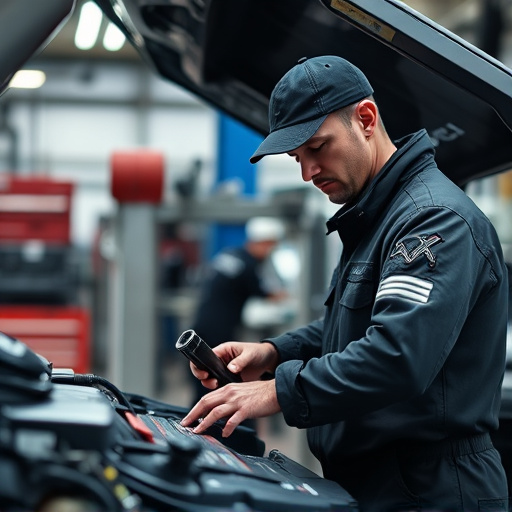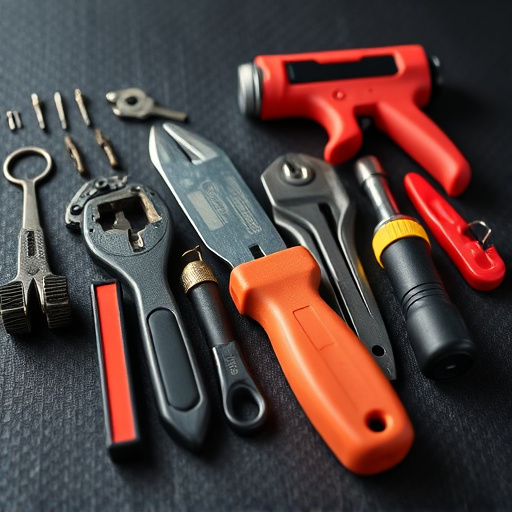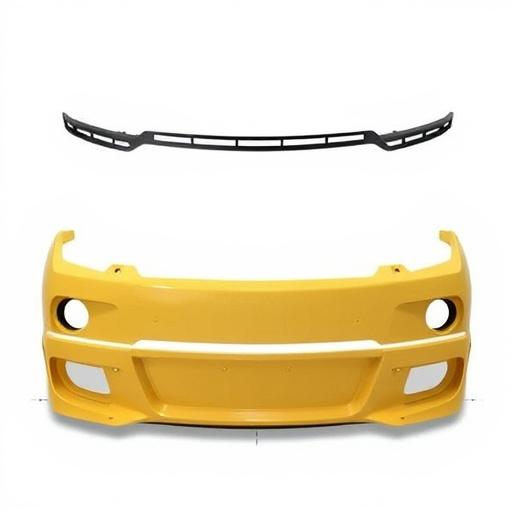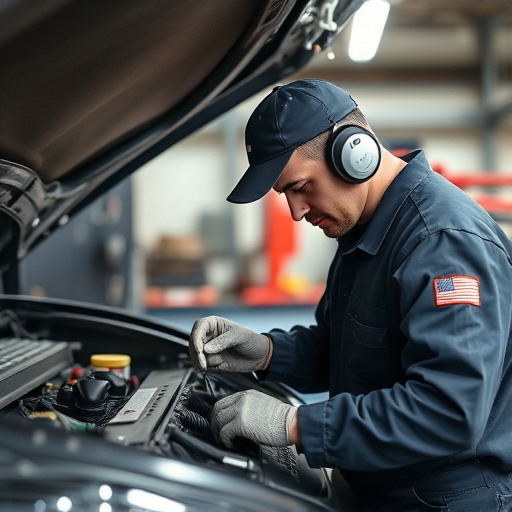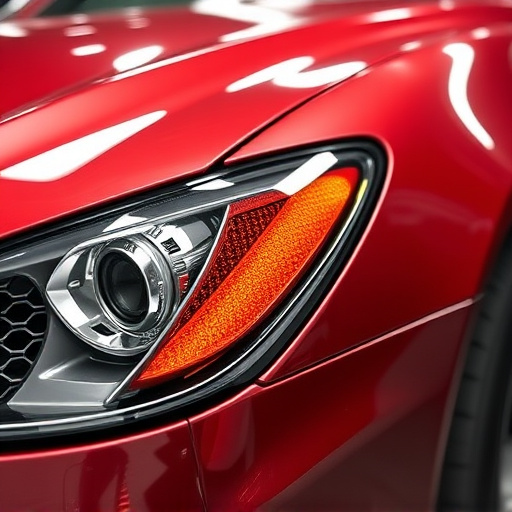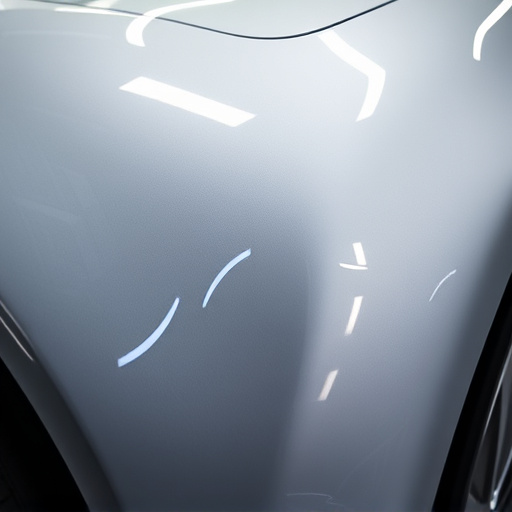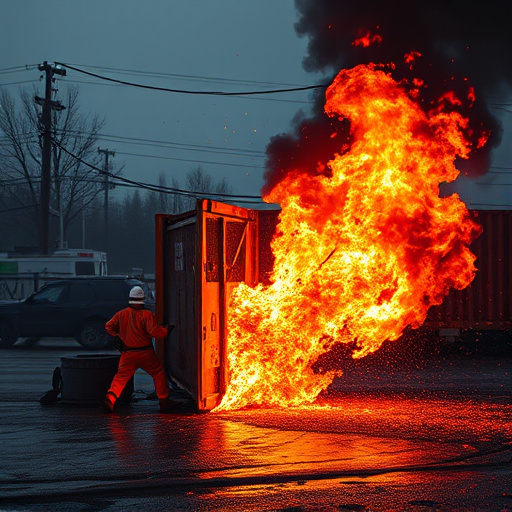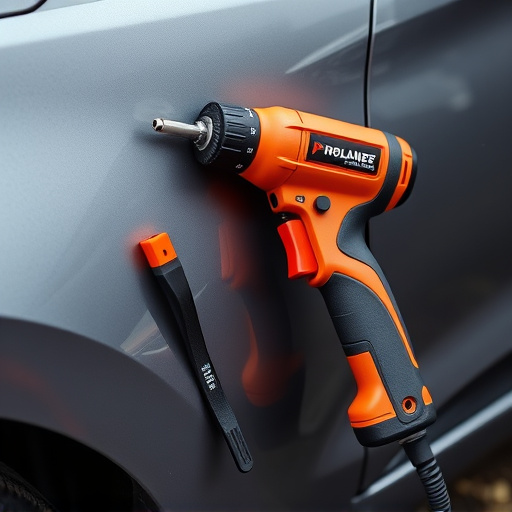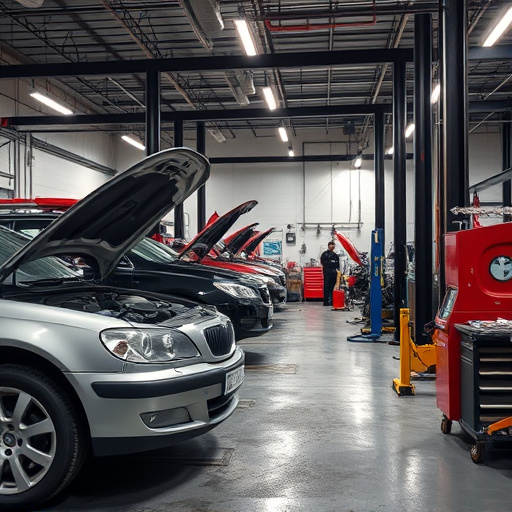Diagnostic scans in collision repair provide precise insights into vehicle damage, enhancing safety and quality. These tools assess structural integrity, electronic systems, and hidden issues, ensuring comprehensive repairs. Adopted widely in the digital era, diagnostic scan practices revolutionize the industry, promoting enhanced safety standards for customers.
In today’s automotive landscape, diagnostic scan collision repair is no longer an option—it’s essential. Advanced scanning technologies play a pivotal role in ensuring safety and quality during vehicle restoration. This article delves into the significance of diagnostic scans, exploring how they revolutionize collision repair processes. We’ll uncover key benefits, from precise damage assessment to improved safety standards. By understanding these advanced techniques, we can navigate the intricate path to safe and effective car repairs.
- Understanding Diagnostic Scans in Collision Repair
- Key Benefits of Incorporating Advanced Scans
- Ensuring Safety and Quality Through Comprehensive Scans
Understanding Diagnostic Scans in Collision Repair

Diagnostic scans play a pivotal role in modern collision repair processes, offering an advanced and precise approach to auto body repairs. These technological tools provide detailed insights into a vehicle’s damage, enabling technicians to make informed decisions. By utilizing diagnostic scans, professionals can accurately identify issues with car paint services, structural integrity, and other critical components that may have been overlooked during visual inspections alone.
This technology goes beyond simple error detection; it optimizes the entire repair process. With access to real-time data, repair shops can streamline their work, ensuring that every fix is tailored to the specific needs of the vehicle. As a result, customers benefit from more efficient auto maintenance and high-quality autobody repairs, ultimately enhancing road safety.
Key Benefits of Incorporating Advanced Scans
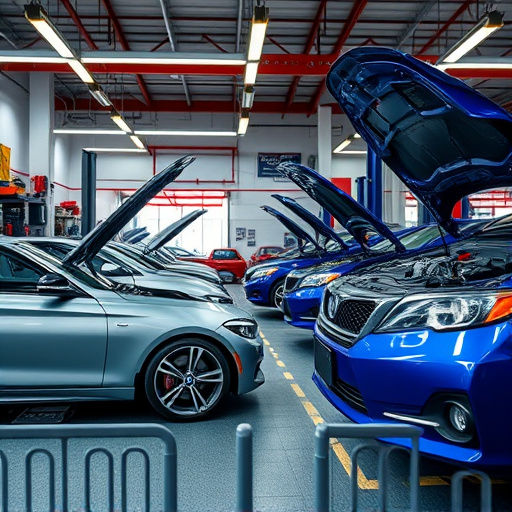
Incorporating advanced diagnostic scans into collision repair processes offers a multitude of benefits that significantly enhance safety and quality in car repair shops. These cutting-edge tools go beyond traditional methods, providing detailed insights into vehicle damage. With a diagnostic scan collision repair approach, technicians can accurately identify hidden issues that might be missed during manual inspections. This precision ensures every aspect of the vehicle’s structure and systems is thoroughly evaluated, thereby facilitating comprehensive repairs.
Moreover, advanced scans streamline the entire restoration process, from assessing initial damage to final vehicle readiness. By quickly pinpointing components in need of repair or replacement, car bodywork services can optimize their efforts, minimizing unnecessary work and cost. This efficiency not only benefits the repair shop but also guarantees customers receive top-notch vehicle restoration with enhanced safety standards.
Ensuring Safety and Quality Through Comprehensive Scans
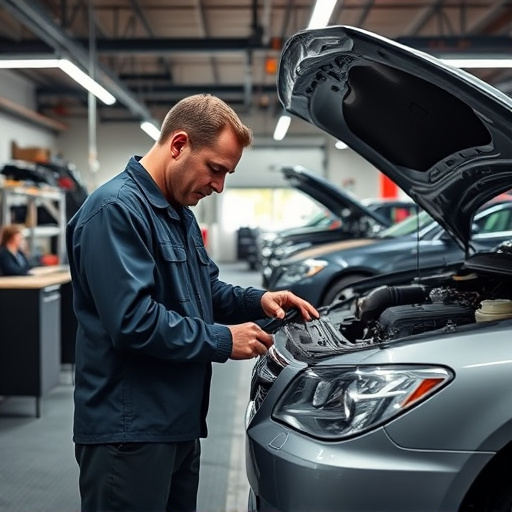
In the realm of collision repair, ensuring safety is paramount. Diagnostic scans play a pivotal role in this process by offering comprehensive assessments that go beyond visual inspections. These advanced tools scan and analyze various components of a vehicle, including structural integrity, electronic systems, and even subtle damage not immediately apparent. By leveraging diagnostic scans, collision repair shops can guarantee that every aspect of the car is safely restored to its pre-incident condition.
Comprehensive scans provide a multi-faceted approach to quality control. For instance, they accurately identify issues with auto glass repair, tire services, or car bodywork services, ensuring these critical elements meet safety standards. This meticulous process not only enhances overall vehicle safety but also instills confidence in drivers and passengers alike. In today’s digital era, adopting diagnostic scan collision repair practices is a game-changer, fostering a culture of safety and reliability across the automotive industry.
Incorporating advanced diagnostic scans into collision repair processes is no longer a choice but an imperative. These technologies play a pivotal role in ensuring the safety and quality of vehicle repairs, identifying potential issues that might go unnoticed otherwise. By embracing diagnostic scan collision repair methods, garages can enhance their efficiency, reduce errors, and ultimately provide customers with safer, more reliable vehicles on the road. This shift towards comprehensive scanning standards is a critical step in modern automotive care, setting new benchmarks for safety and precision.
